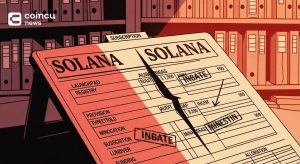FTX And Genesis Clash: $175 Million Dispute Escalates Amidst Restructuring
Key Points:
- The FTX 2.0 Coalition seeks resolution in a $175 million dispute with Genesis.
- Genesis emerges as FTX’s largest unsecured creditor, while FTX’s claim of $2 billion is disputed.
- The FTX CEO and debtors also clash with traders in the Official Committee of Unsecured Creditors over a proposed $2.6 billion investment in short-term Treasurys.
On August 17, the FTX 2.0 Coalition, comprising FTX users promoting the exchange experience, issued a statement opposing the exchange’s agreement and Genesis via Twitter.

FTX has petitioned the court to mediate a $175 million disagreement with Genesis. This proposed settlement includes the release of a $175 million customer claim and seemingly negligible Alameda claims.
The amount under contention has dropped significantly, from an initial assertion of $3.9 billion to a reduced $2 billion. This deal raises eyebrows, particularly in light of the ongoing DCG and Genesis’s Department of Justice investigation.
Surprisingly, Genesis claims presently hold a higher value compared to those of FTX, despite the former’s lender balances being artificially inflated through earned interest from lending, including to Alameda.
In 2022, Genesis was purportedly “repaid by Alameda” with billions sourced from FTX customer funds, a fact that can be directly traced back to customer deposits. Anticipating pushback, the Official Committee of Unsecured Creditors (UCC) is expected to object to this settlement proposal.
As FTX navigates its restructuring, CEO and Chief Restructuring Officer John J. Ray III, leading FTX debtors, is at odds with traders and market makers within the UCC.
They oppose the UCC’s strategy of investing nearly $2.6 billion of cash reserves into short-term Treasurys, deeming it unsuitable within the context of the FTX 2.0 draft restructuring plan.
DISCLAIMER: The information on this website is provided as general market commentary and does not constitute investment advice. We encourage you to do your own research before investing.






















